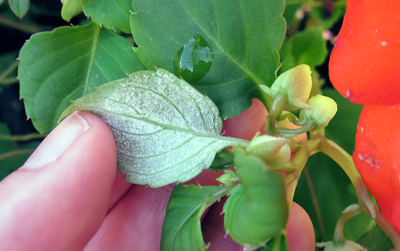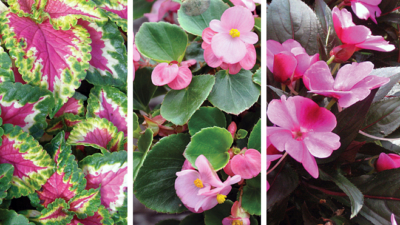Last growing season, you may have experienced difficulties growing impatiens in your garden. You were certainly not alone.
After much speculation and a great deal of research, it was determined the cause was a fungal disease called Downy Mildew.The problem originated a few years ago in the southern region of the country and is still debated as to exactly how it spread north.
What is certain is that this is a widespread disease that can only be controlled by applying fungicides that are not available to the general public. Further compounding the problem is the fact the fungal spores that carry the fungus remain in the soil from year to year and are also airborne. That is they also spread through the air much like pollen or certain seeds. The good news is Downy Mildew affects seed impatiens and seed impatiens only. Not New Guinea Impatiens or SunPatiens. Unfortunately plants will show no signs of infection for at least ten weeks and in many cases will not show any signs unless conditions are favorable (cloudy, cool and wet).

Healthy impatiens planted where diseased plants were last season will most likely suffer the same fate. Impatiens planted in new or “clean” beds are still susceptible to airborne spores from infected plants located elsewhere. Quite possibly, from a neighbor’s house up the street.
We at Briggs Nursery want to ensure your gardening experience is a positive one. This is why we have decided to limit our offering of seed impatiens this season. We are certain the plants we offer are free of Downy Mildew but we can make no such assurances once they leave our nursery. Impatiens have long been gardeners favorite choice for shade loving annuals. There is no comparable substitute. There are however, many wonderful alternatives, including Begonias, Coleus and New Guinea Impatiens. We invite you to experiment and enjoy some of the many choices we have available.
